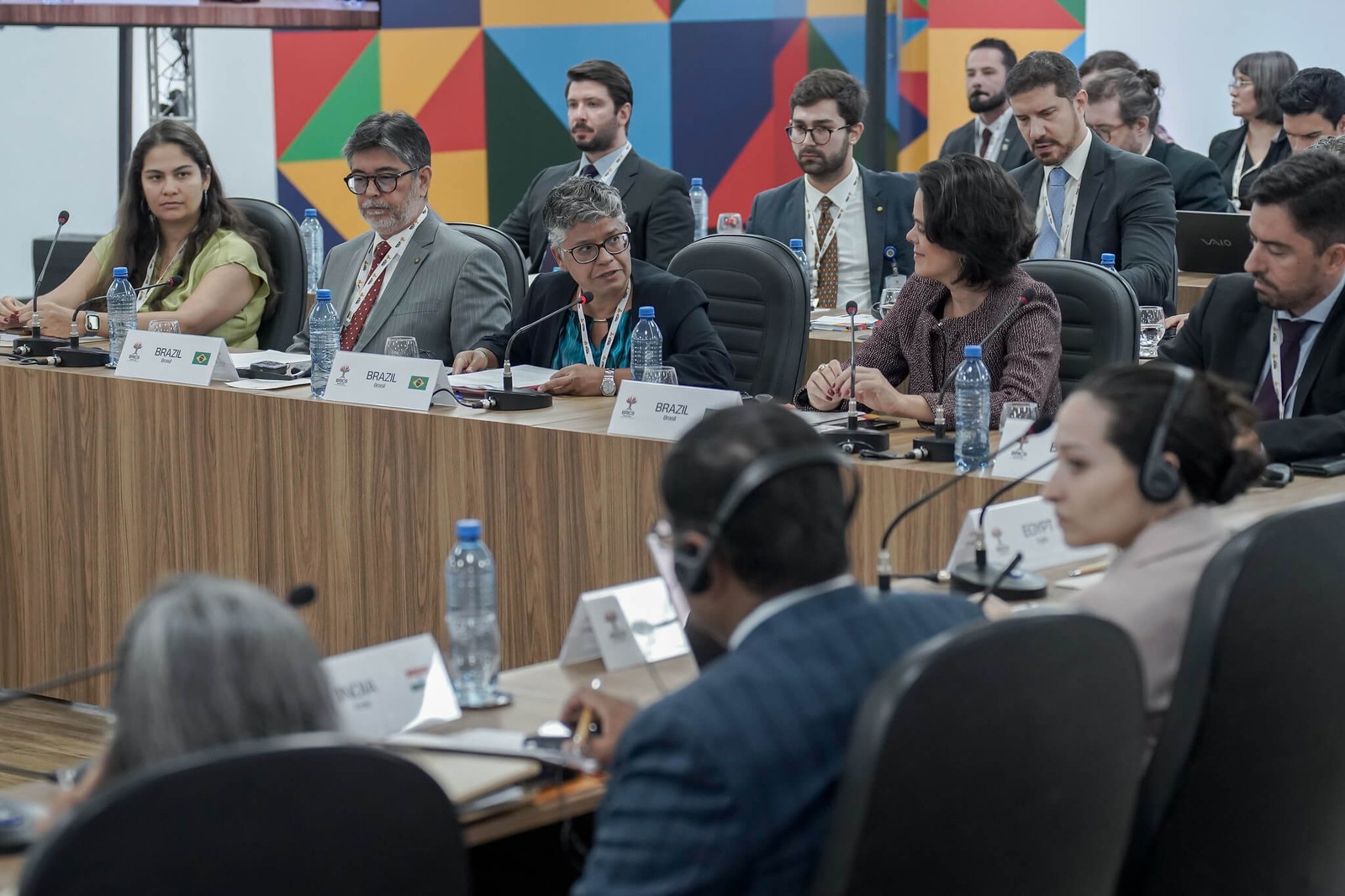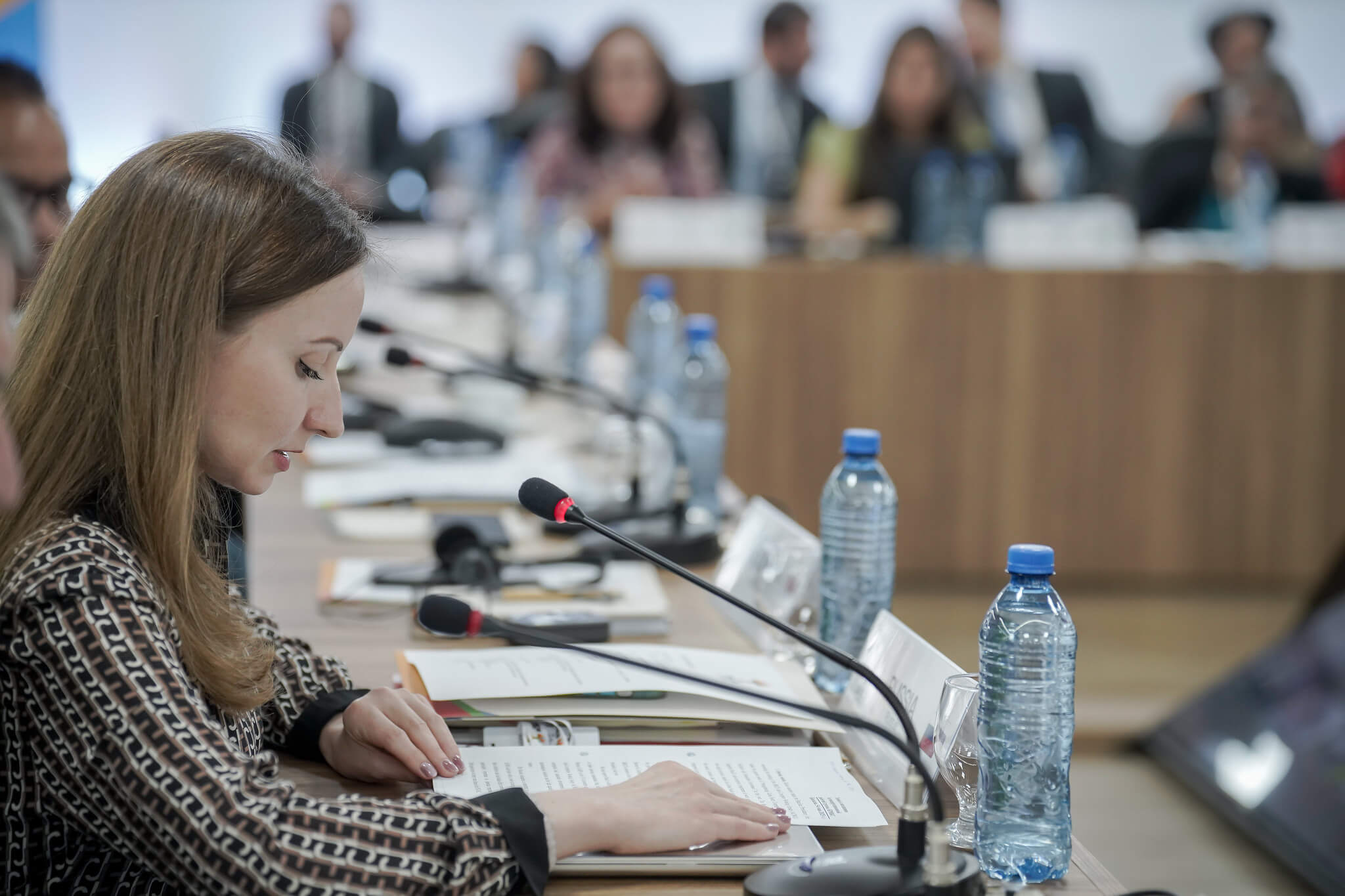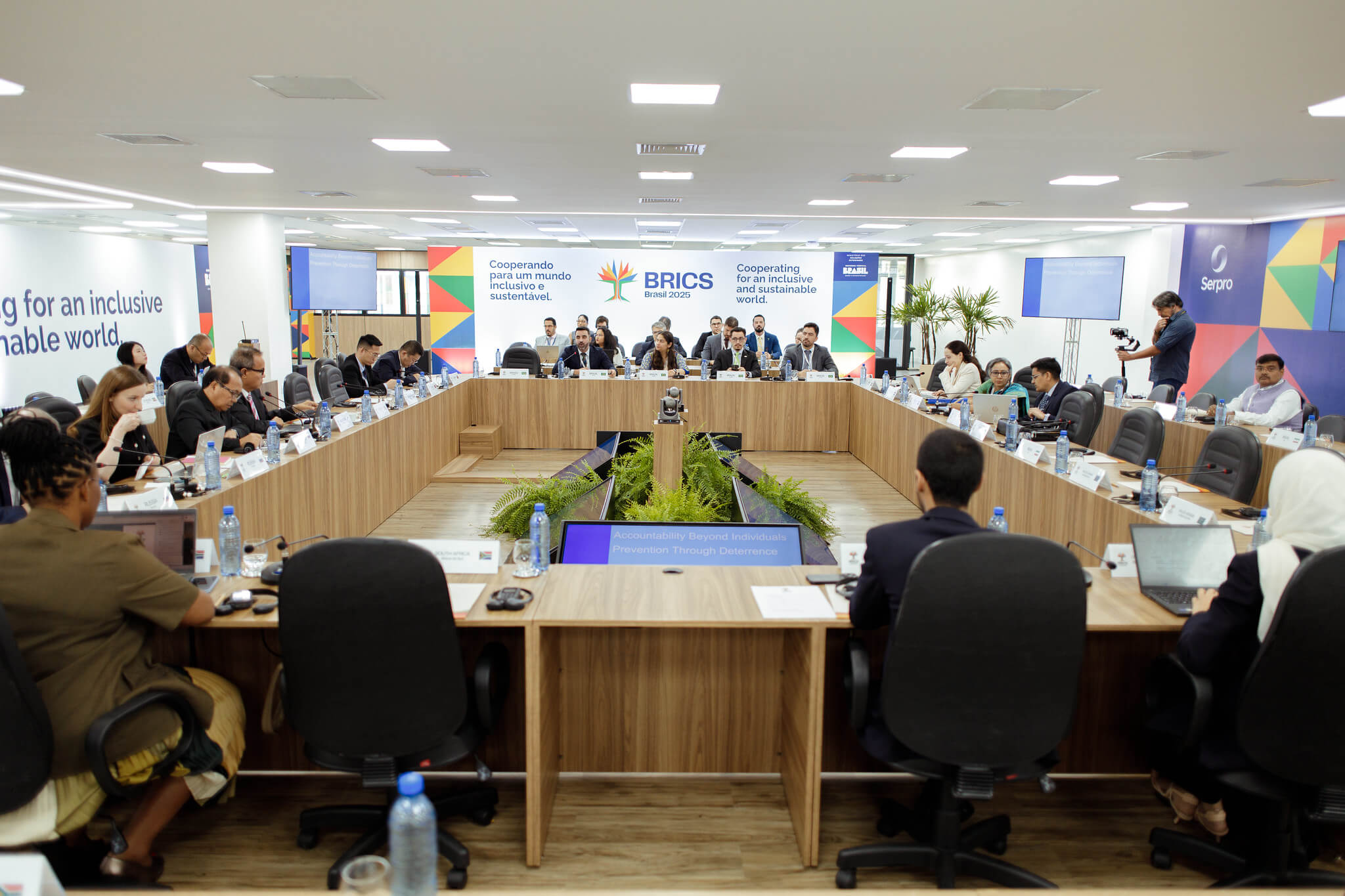BRICS strengthens anti-corruption cooperation in meeting led by Brasil’s Office of the Comptroller General (CGU)
With a focus on climate integrity, asset recovery, and technology, Brasil presented recent progress and proposed joint actions to be taken up at the BRICS Summit and COP30.

By Leandro Molina / leandro.molina@presidencia.gov.br
Under Brazilian leadership, the Office of the Comptroller General (Controladoria-Geral da União/CGU) hosted discussions in Brasília for the BRICS Anti-Corruption Working Group, one of the core priorities of the group’s 2025 agenda. The meeting brought together senior representatives from BRICS member countries to align strategies on public integrity, corruption prevention, asset recovery, and climate governance—issues that have gained growing global relevance in recent years.
CGU Executive Secretary Eveline Brito emphasized that the Brazilian presidency is prioritizing three key pillars: inclusive multilateralism aimed at reducing asymmetries among developed and developing countries; the integration of anti-corruption efforts with climate justice, an increasingly urgent issue in the face of environmental challenges; and the strengthening of transparency mechanisms through the use of technology and international legal cooperation. “Corruption not only diverts public funds but also deepens inequality and weakens responses to global crises such as climate change,” stated Brito. She referenced the 2025–2027 Integrity and Anti-Corruption Plan, launched in December, which outlines 260 initiatives in areas such as sustainable procurement, environmental resource oversight, and partnerships with the private sector.
One of the panels focused on “Climate, Integrity, and Sustainable Development,” addressing how corruption exacerbates environmental crises—from the misappropriation of conservation funds to fraud in carbon markets. Eveline Brito underscored Brasil’s intention to place climate integrity at the center of global negotiations as the host of COP30 in Belém this November. She also noted that there can be no climate justice without transparency. “Vulnerable populations, especially in the Amazon and other impoverished regions, are most affected when funds are diverted or policies go unimplemented. Fighting corruption is not just about punishment; it is about ensuring that public policies reach those who need them most,” she explained.
Russia shared its experiences in tracking environmental crimes, such as illegal logging and clandestine mining. South Africa presented successful cases of restoring degraded land through public-private partnerships with robust auditing mechanisms. Mayra Saito, head of the Brazilian Government's Digital Policy Secretariat’s Disinformation Taskforce, warned of a new threat: climate disinformation. “Fake news about environmental policies can erode institutional trust and delay urgent action,” she said, citing Brazilian initiatives such as the Environmental Information Observatory, which cross-references official data with reports from civil society.
In the field of asset recovery, National Secretary of Justice Jean Keiji Uema outlined the progress made under the National Asset Recovery Policy (PNRA), launched in February 2025. This mechanism sets guidelines for identifying, freezing, and repatriating diverted funds, including in cross-border cases. “In 2024 alone, Brasil recovered BRL 2.3 billion in corruption-related assets,” Uema stated. “We now aim to expand cooperation within BRICS, particularly in cases involving tax havens and cryptocurrency-based money laundering,” she concluded.

Natalia Primakova, adviser at Russia’s Ministry of Foreign Affairs’ Department of New Challenges and Threats, highlighted achievements such as the 2022 document Common Vision in Joint Action, which unified investigative and training methodologies for anti-corruption, as well as the 2023 Guidelines for Legal Cooperation, which facilitated extraditions and evidence sharing. She also mentioned the Rapid Alert System, a platform for tracking suspicious asset movements among member states. “Consensus is our method, but urgency is our motivation,” said the Russian adviser.
Discussions also addressed technological solutions for integrity, including the use of blockchain for digital procurement records, artificial intelligence to detect fraud in large datasets, and whistleblower protection through secure platforms. China shared examples of smart cities utilizing sensors and algorithms to prevent fraud in real time, while India presented its Aadhaar digital payments system, which uses facial recognition and has helped reduce corruption in social programs.
The outcomes of the meeting will inform two major events: the BRICS Summit in Rio this July, where the Anti-Corruption Working Group will propose a joint action plan with measurable goals through 2030; and COP30 in Belém, where Brasil will advocate for the creation of a “Global Forum on Climate Integrity” linked to the United Nations.
The Brasília meeting reinforces BRICS' role as a forum for cooperation on global challenges, demonstrating that even in a complex geopolitical landscape, fighting corruption and advancing transparency remain shared priorities. Under Brasil's presidency, the group seeks to consolidate practical advances that could serve as a model for other regions, particularly in addressing environmental and financial crimes that transcend borders. The challenge now is to turn dialogue into concrete action, with effective monitoring mechanisms and tangible results for BRICS citizens.
Integrity and climate change

Elizabeth Cosmo, head of CGU’s Special Advisory Office for International Affairs, emphasized the impact of corruption on environmental policy. “Climate change presents challenges that require efficient public policies. Corruption can undermine these efforts by diverting resources meant for mitigation and adaptation,” she stated.
Another key point was the use of digital tools to prevent fraud. “Criminals use technology, and we need to stay ahead,” stated Cosmo. She cited ALICE, an AI platform developed by CGU that analyzes tenders, contracts, and procurement notices on federal e-procurement platforms. Its purpose is to flag inconsistencies and potential signs of fraud in advance, helping reduce corruption and prevent the waste of public resources.
International cooperation in tracing and repatriating diverted funds was also a major topic. Brasil shared recent recovery figures from leniency agreements, highlighting the importance of returning those funds to essential areas such as healthcare and education. “This is a sensitive issue for countries in the Global South, where the impact of corruption is often more severe,” Elizabeth Cosmo noted.
The group is expected to maintain asset recovery as a priority area through the BRICS Summit in July. When asked how these discussions affect ordinary citizens, Cosmo was unequivocal: “Corruption is not abstract. When a hospital lacks funding or a bridge goes unbuilt, it is because that money was stolen. BRICS accounts for nearly half the world’s GDP. We must act together,” she concluded.